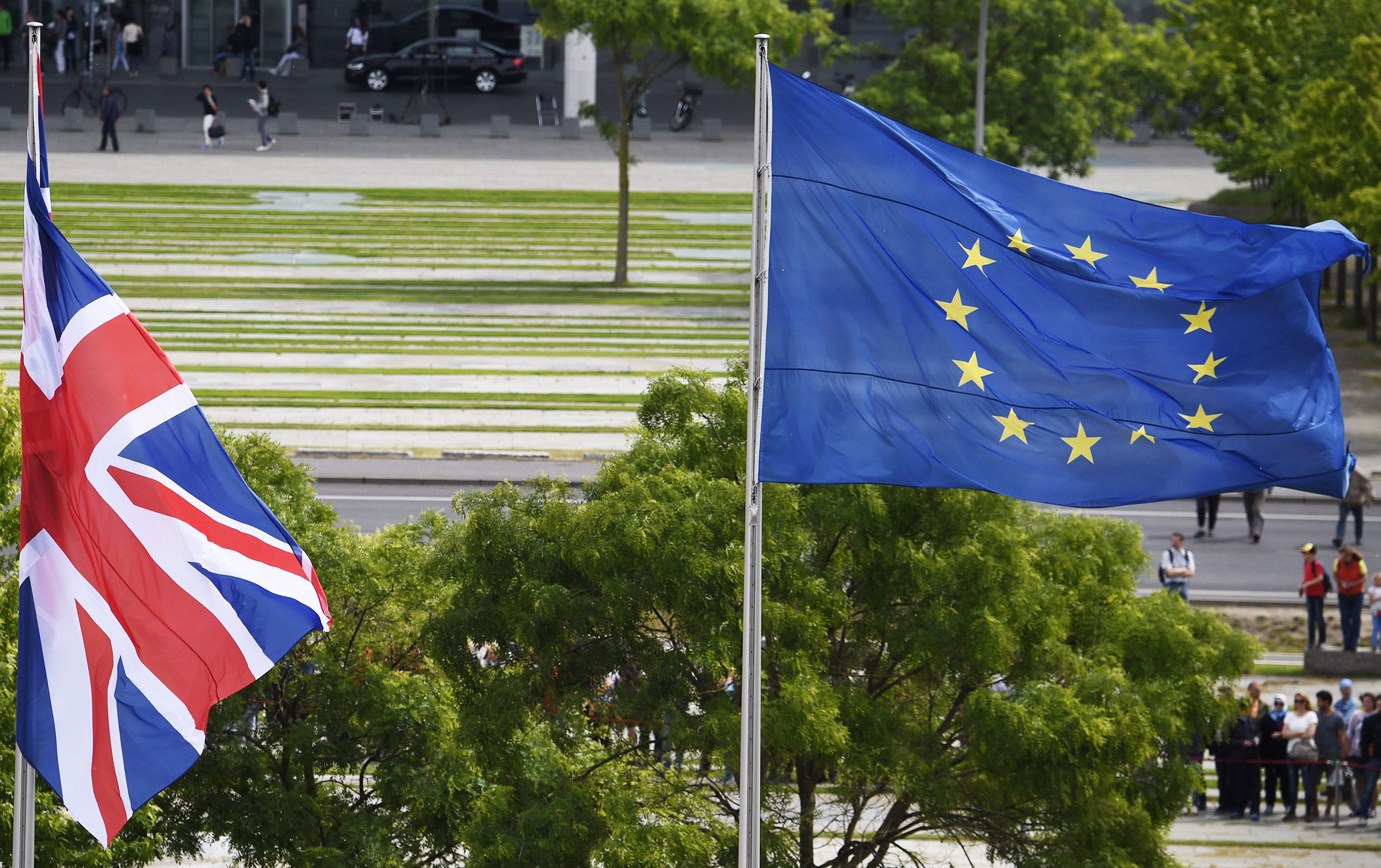EU referendum: Out campaign set to use small firms to counter pro-EU views of big business
27 Tories voted against the EU Referendum Bill in the Commons

Your support helps us to tell the story
From reproductive rights to climate change to Big Tech, The Independent is on the ground when the story is developing. Whether it's investigating the financials of Elon Musk's pro-Trump PAC or producing our latest documentary, 'The A Word', which shines a light on the American women fighting for reproductive rights, we know how important it is to parse out the facts from the messaging.
At such a critical moment in US history, we need reporters on the ground. Your donation allows us to keep sending journalists to speak to both sides of the story.
The Independent is trusted by Americans across the entire political spectrum. And unlike many other quality news outlets, we choose not to lock Americans out of our reporting and analysis with paywalls. We believe quality journalism should be available to everyone, paid for by those who can afford it.
Your support makes all the difference.The campaign to persuade the British public to leave the European Union will deploy small firms to counter the pro-EU views of big business and play on voters’ concerns about immigration.
Organisers say that the Out campaign, due to be unveiled shortly, will not “shout about immigration from the rooftops” because it is already the main reason why people want to leave the EU. They will brand David Cameron’s renegotiation of Britain’s EU membership terms as “a failure” if he does not win back control over immigration policy.
Such a verdict is inevitable because the Prime Minister has already decided not to challenge the EU’s “free movement of people” principle after Angela Merkel, the German Chancellor and most powerful player on the EU stage, told him that diluting it was a non-starter.
Conservative MPs who will join the Out campaign admit that its biggest challenge is to allay the public’s fears that quitting the EU would damage the economy because Britain could lose the benefits of free trade with Europe and job-creating investment from countries outside Europe. One Tory MP said: “Our biggest obstacle is the fear factor about leaving. If we can remove that, we will win the referendum.”
The Out camp plans to create a “movement” of small businesses, many of whom resent Brussels red tape, to answer pro-European statements by business groups such as the CBI. “If all that people hear is business voices saying that jobs will be lost, we will not reassure them,” said the MP.
The Out campaign will try to portray its stance as a positive vote for a trading relationship with the EU; getting back Britain’s £10bn net EU contributions, with some of it spent on boosting trade with the world’s fast-growing economies. This follows fears that the In campaign will portray those calling for withdrawal as backward-looking and negative.
In the House of Commons tonight David Cameron suffered his first Tory backbench rebellion since last month’s general election. Some 27 Tories voted against the EU Referendum Bill after accusing ministers of tilting the plebiscite in favour of the In campaign by allowing the Government machine to issue public statements about Europe in the four weeks before the vote.
A rebel amendment to reimpose the system of “purdah” – a ban on such statements before elections and referendums– was rejected by 288 votes to 97, a government majority of 191. Labour abstained, putting paid to the prospect of a humiliating defeat for Mr Cameron, but claimed the Bill was already “in chaos”.
The Government headed off a bigger rebellion by promising to amend the Bill this autumn to ensure the referendum campaign would be “fair”. David Lidington, the Europe Minister, told the Commons: “We will ensure there is a clear mechanism that in those four weeks before polling day, government will not undertake a range of activity that most would regard as the province of the campaigns, such as issuing mailshots, running commercial advertising campaigns and emailing voters.” He said the curbs could be included in a “code of conduct.”
But his compromise did not far enough for some Tory Eurosceptics. Liam Fox, the former Defence Secretary, who voted against the Government, said: “The fear in this debate is that the government, at all levels, central and local, can use taxpayers’ money to support one side of the debate, potentially changing the course of that debate.”
Alex Salmond, the SNP’s foreign affairs spokesman, accused Mr Cameron of a U-turn after the Government prevented another Tory revolt by ruling out holding the referendum on the same day next May as elections to local authorities, the Scottish Parliament and Welsh Assembly.
Mr Salmond said: “The Government faced retreat or defeat on this issue. It was clear that the Tories were angling to hijack Scottish elections with the EU referendum and the united opposition have blown them off course.”
Join our commenting forum
Join thought-provoking conversations, follow other Independent readers and see their replies
Comments